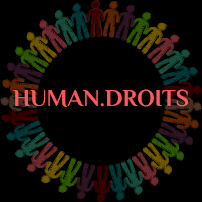The author of this blog is Ritika Sharma. She is the Founder of the blog, HUMAN.DROITS, and is also an LL.M. Graduate from the Geneva Academy of International Humanitarian Law and Human Rights. She can be reached at ritika4523@gmail.com.
[This is the second blog in the series 'Ukraine-Russia Conflict'. The first blog of this thread titled, 'Part 1-Ukraine - Russia Conflict: A Peak into the History' covered the geographical history of both nations, the Budapest Memorandum, the East and West Ukraine, and the Minsk Agreements.]
 |
| Demonstration against aggression of Russia |
Introduction
The 21st Century is considered to be quite advanced where everything seems to be systematic and organised. Still, various parts of the world are suffering from human rights violations and the organisations and conventions that aim at building global peace fail to cease these atrocities.
Russia started invading parts of Ukraine on 24th February 2022. Following this invasion, international law was highly condemned. However, why did Russia decide to take this sudden step of attacking Ukraine? Why Ukraine was unprepared? How this invasion breached international law? The follow-up piece aims at analysing the events that led to the invasion, and its consequences.
How the invasion began
The significant cause that triggered Russia's invasion of Ukraine was history. Not that the historical story justifies the invasion in any way, however, it is how Russia is trying the justify it.
At the very beginning of the year 2021, the Ukrainian President expressed his will to make Ukraine a NATO member. This, undoubtedly, annoyed the Russian President who still believed that Ukraine's history is strongly tied to Russia and that the act of joining NATO would be against the interests of Russia. Consequently, on the pretext of training the military, Russia started posting its troops near the Ukraine-Russia border, and this was in huge numbers. Then, at the end of 2021, Russia demanded that NATO should prohibit Ukraine from joining it. Washington responded to this demand by stating that NATO has an 'open-door policy', therefore, they cannot bar any nation from joining. This resulted in the emergence of the deadly Ukraine-Russia conflict from 24th February 2022.
Breach of international law
Russia calls this invasion 'succession'. Article 2(1)(b) of the Vienna Convention Act, 1978 defined 'state succession' as "the replacement of one state by another in the responsibility for the international relation of territory". However, the United Nations has denied calling it valid under international law. Apart from the violation of the provisions of the ICCPR, UDHR, European Convention on Human Rights, etc., the following points reflect how and what other aspects of international law have been violated by Russia:
- Against the equal rights and self-determination principle- Article 1(2) of the United Nations Charter lays down that the United Nations has a purpose "to develop friendly relations among nations based on respect for the principle of equal rights and self-determination of peoples, and to take other appropriate measures to strengthen universal peace". This itself makes these acts of violence against international law.
- Breached the right to the political independence of Ukraine- Article 2(4) of the UN Charter provides that, "all Members shall refrain in their international relations from the threat or use of force against the territorial integrity or political independence of any state, or in any other manner inconsistent with the Purposes of the United Nations". This invasion vividly breached the UN Charter. The Russian authorities tried justifying it under Article 51 of the Charter which validates the use of force in individual or collective self-defense. Moreover, it was contended by the Russian President that the Ukrainian government is committing genocide against the Russians living in East Ukraine. However, neither such attack was initiated by the Ukrainian army to make it fall under Article 51, nor it can be called a genocide within the ambit of Article II of the Genocide Convention. Thus, negating such grounds of justification.
- Violated International Humanitarian Law- Several Ukrainians have already lost their lives, and many others are getting injured in this violence. Under International Humanitarian Law, the Fourth Geneva Convention, of 1949 expressly provides for the protection of civilians or non-combatants in armed conflicts. Furthermore, Article 51 of Protocol Additional to the Geneva Conventions of 12 August 1949 lays down exhaustive provisions for the protection of civilians in military operations and hostilities.
- Violated International Criminal Law- This attack has also invoked the claims under the Rome Statute of the International Criminal Court. Article 8 of the Rome Statute states the definition of war crimes and lays down the jurisdiction of the International Criminal Court of such cases of war crimes. Under this instrument, war crimes are the "grave breaches of the Geneva Convention".
Concluding Remarks
This invasion and breach have led to claims in the International Court of Justice, alternate dispute mechanisms, and interventions by other countries. Springing up from a historical but narrow perspective, this conflict has become an example of a punctured international system for many.
Sources
https://www.reuters.com/world/europe/events-leading-up-russias-invasion-ukraine-2022-02-28/
https://www.un.org/en/about-us/un-charter/full-text










%20in%20Myanmar.%20The%20image%20features%20a%20resilient%20woman%20standing%20firm%20in.webp)



0 comments:
Post a Comment